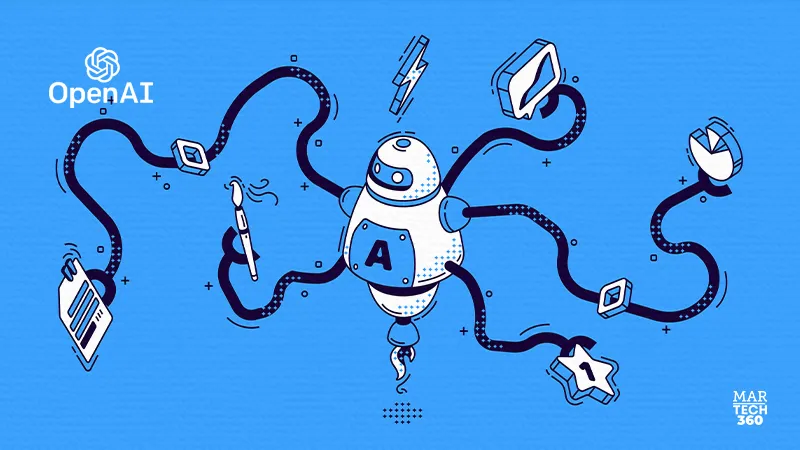OpenAI is introducing a new feature that enables corporate customers to use their own company data to customize GPT-4o, the artificial intelligence (AI) start-up’s most advanced model.
This initiative comes as start-ups encounter increasing competition for their AI products and businesses face mounting pressure to showcase the benefits of their AI investments.
OpenAI will implement this customization capability, commonly referred to in the AI industry as fine-tuning. Fine-tuning allows existing AI models to be trained with additional information specific to a particular task or subject area.
For instance, a company that manufactures skateboards might customize an AI model to serve as a customer-service chatbot, capable of answering questions about wheels and board maintenance.
Also Read: Circana to Acquire NCSolutions and Nielsen’s Marketing Mix Modeling Business
This capability is new for OpenAI’s flagship model, as fine-tuning was not previously available for GPT-4o or its predecessor, GPT-4. However, OpenAI has allowed users to fine-tune several other models, including GPT-4o mini, a more affordable and streamlined version of GPT-4o.
Many tech companies provide options to customize AI models of various sizes. OpenAI aims to simplify the process for customers to adjust its most advanced model by working directly with the company, rather than relying on external services or less powerful products, according to Olivier Godement, the head of product for OpenAI’s API.
“We’ve been extremely focused on reducing barriers, minimizing friction, and decreasing the amount of effort required to get started,” Godement said.
To fine-tune a model, customers need to upload their data to OpenAI’s servers. The training process typically takes one to two hours, according to John Allard, an OpenAI software engineer who works on customization. Initially, users will only be able to fine-tune the model with text-based data, not images or other types of content, Allard noted.
In a separate development, OpenAI has signed a multiyear agreement with Condé Nast to license the magazine company’s content, marking another high-profile media deal for the AI start-up.
OpenAI will integrate content from brands such as Vogue, the New Yorker, and Wired into its products, the company announced on Tuesday. The deal also permits OpenAI to use Condé Nast’s content for training its AI models, which require extensive data to learn effectively.
The announcement signifies an expansion of OpenAI’s efforts to collaborate with media companies rather than contest them over the use of news articles and other content in its AI tools. Financial details were not disclosed.
“It’s crucial that we meet audiences where they are and embrace new technologies while ensuring proper attribution and compensation for the use of our intellectual property,” wrote Condé Nast CEO Roger Lynch in a memo to employees. “This is exactly what we have found with OpenAI.”
Lynch noted that OpenAI has been “transparent and willing to work productively with publishers,” adding that the deal is “just the beginning” of the “fight for fair deals and partnerships across the industry.”
Over the past year, OpenAI has reached similar agreements with Axel Springer, The Atlantic, and Vox Media, among others. However, not every outlet is collaborating with the company.
In December, the New York Times filed a lawsuit against the start-up, accusing it of using its copyrighted articles without permission to develop its technology. OpenAI has contested these claims, stating that the New York Times is not providing the full picture.
As part of its agreement with Condé Nast, OpenAI will incorporate Condé Nast’s content into its forthcoming SearchGPT product, a search-focused version of its popular chatbot that has not yet been widely released.
Brad Lightcap, OpenAI’s Chief Operating Officer, stated that the company is “committed to collaborating with Condé Nast and other news publishers to ensure that AI’s growing role in news discovery and delivery upholds accuracy, integrity, and respect for quality reporting.”


Comments are closed.